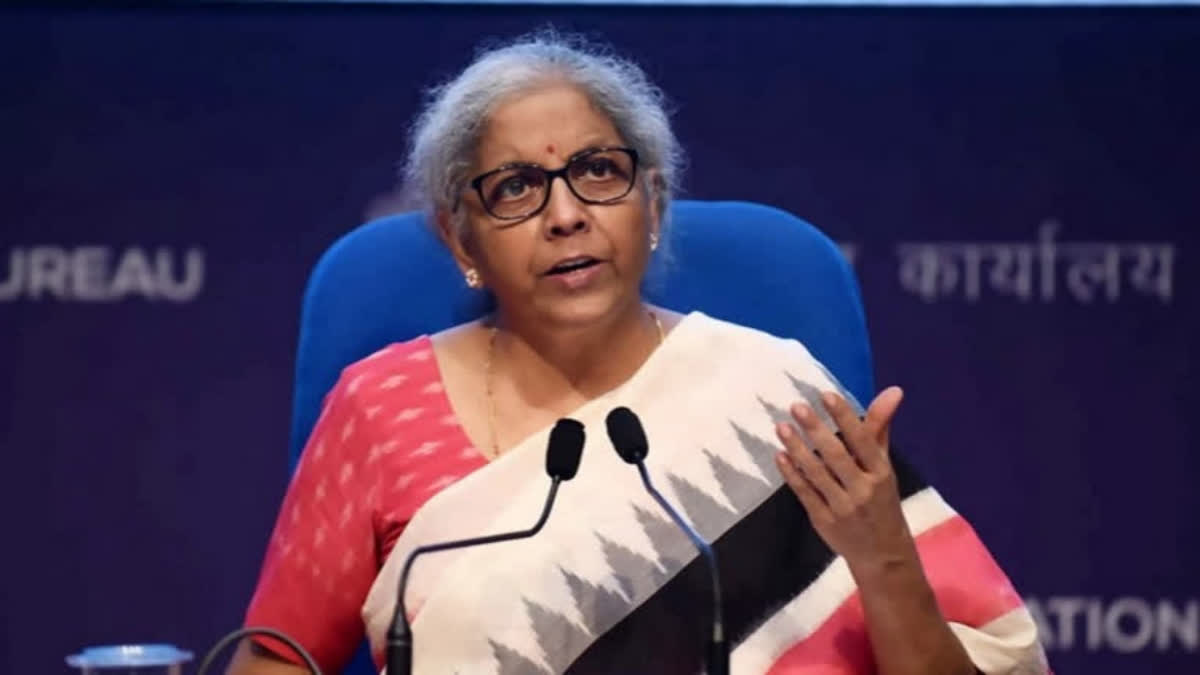New Delhi: Finance Minister Nirmala Sitharaman is presenting the Union Budget 2024-25 in Parliament since 11 AM- making it the first budget of Prime Minister Narendra Modi's third term. She has announced the nine key priorities for the fiscal budget for 2024-25. These are as follows:
- Productivity and resilience in Agriculture: ₹1.52 lakh crore set aside for the agricultural and related sectors. One crore farmers would be introduced to natural farming over the course of the next two years with the help of branding and certification. Shrimp farming facilities would receive financial help, and NABARD will promote exports. Five states are set to get Kisan Credit Cards. Six crore farmers and their land will be added to the farmer and land registry in order to guarantee self-sufficiency in oil seeds and pulses.
- Employment and Skilling: FM Sitharaman said that the focus will be on jobs and skilling of 4.1 crore youth. The budget proposes significant benefits for new and additional employment to propel growth. As many as three schemes are being announced which include one month wage upto 15,000 for first time employee with salary upto Rs.100,000. Benefit will disbursed in 3 Installment. The three schemes are as follows:
Scheme A: First Timers
Scheme B: Job Creation in manufacturing
Scheme C: Support to employers
She said, "These schemes will be based on enrolment in the EPFO, focusing on recognizing first-time employees. First-timers will receive one month's wage upon entering the workforce in all formal sectors. A direct benefit transfer (DBT) of one month's salary, up to ₹15,000, will be provided in three instalments. The eligibility limit for this benefit will be a salary of ₹1 lakh per month, and it is expected to benefit 2.1 lakh youths."
To enhance females in workforce, the FM assured that working women hostels will be set up. Higher participation of women in workforce would be promoted through hostels and creches, she said. The government will launch scheme to offer internship in top companies to one crore youth in five years, said the FM. - Inclusive Human Resource Development and Social Justice: Finance minister said that as mentioned in the interim Budget, the focus would be on four different castes, the poor, women, youth and the farmer.
- Manufacturing and services: The FM said that a new mechanism would be constructed for facilitating continuation of bank credit to MSMEs during their stress period. Mudra loan limits would rise from ₹10 lakh to ₹20 lakh. The obligatory onboarding barrier for buyers on the TReDS platform would be lowered from ₹500 crore to ₹250 crore. In the MSME sector, funding support for 50 multi-product food irradiation units will be guaranteed. The establishment of PPP-mode E-Commerce Export Hubs will allow MSMEs and traditional craftspeople to market their goods internationally.
- Urban Development: The FM announced an investment of ₹2.2 lakh crore to make urban housing more affordable.
- Energy Security: The PM Suryaghar Muft Bijli Yojana has been launched to install rooftop solar panels to enable 1 crore households to obtain free electricity upto 300 units each month. "This scheme will further encourage it," she added.
- Infrastructure: FM announced that industrial parks will be developed in or near 100 cities. She also proposed that investment-ready “plug and play" industrial parks to will developed in or near 100 cities and 12 industrial parks sanctioned under National Industrial Corridor Development Programme.
- Innovation, Research and Development: "The government will partner with the private sector for setting up Bharat small reactors, research and development of Bharat small modular reactors, and research and development of newer technologies for nuclear energy," Nirmala Sitharaman said regarding the nation's development of small and modular nuclear reactors.
- Next Generation Reforms: The building of corridors connecting Kashi Vishwanath Temple to Vishnupad Temple and Mahabodhi Temple was on the top priorities as stated by Finance Minister Nirmala Sitharaman. She went on to say that the government would also help Nalanda in Bihar develop. Furthermore, the government would help Odisha build its tourism industry as well.
Read More:



